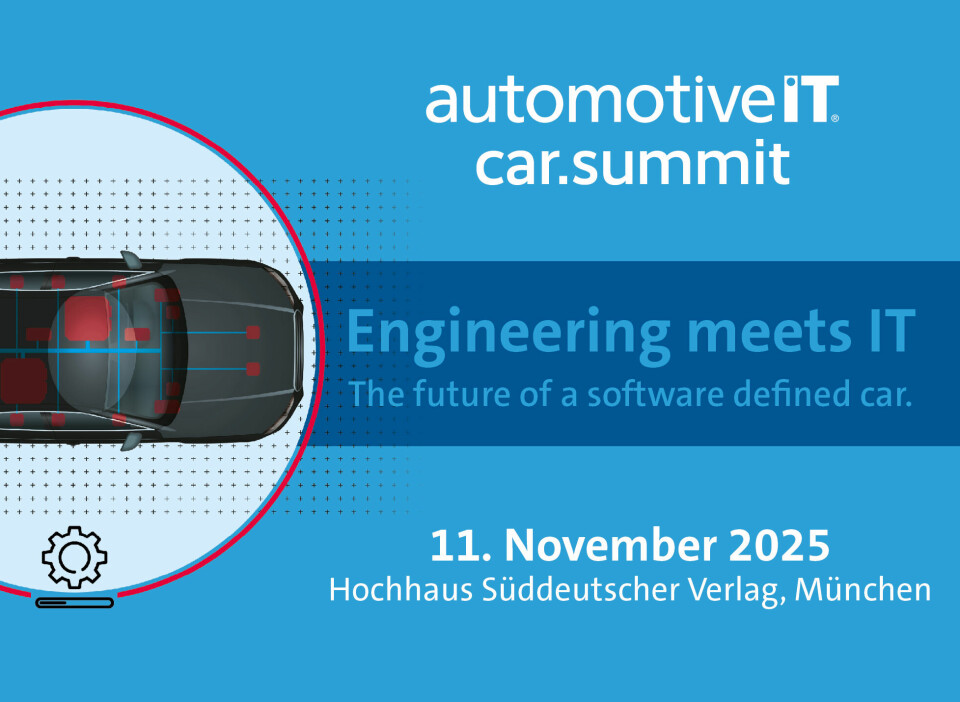Founding of "The Autonomous Organization"
How The Autonomous 2025 advances autonomous vehicles
With the symbolic joint pressing of a buzzer, the founding members launched 'The Autonomous Organization'. (from left): Susanne Einzinger (Head of The Autonomous), Dr. Stefan Poledna (CEO and CTO of TTTech Automotive), Lars Reger (CTO of NXP Semiconductors), Georg Kopetz (CEO of TTTech), Peter Schäfer (Executive VP and CSO Automotive at Infineon) and Ricky Hudi (Chairman of The Autonomous).
Alfred Vollmer
In Vienna, the "The Autonomous Main Event 2025" was a key conference on the future of safe autonomous systems. The focus was on integration and AI, and where there are further opportunities for the automotive industry.
The sixth "The Autonomous Main Event" in Vienna was also the official starting signal for the expansion of focus - from the pure automotive world to the worlds of robotics, healthcare, and other application areas. "We are launching the second stage of the autonomous rocket," said Lars Reger, CTO of NXP Semiconductors, at the event. "Today, it's no longer about innovation, but about the integration of safety, security, and trust." Georg Kopetz, one of the founders of TTTech Automotive and The Autonomous, added: "It's about the interplay of software and semiconductors."
Ricky Hudi, chairman of The Autonomous, describes the initiative as "an open platform that builds an ecosystem of all the players involved in developing safe autonomous mobility" - and immediately added: "We have a clear vision ... (namely) to shape the future of robust autonomous systems that also meet the absolutely necessary requirements in terms of functional safety and cybersecurity." This year's motto was: "Making a real-world impact: safe and secure software-defined autonomy."
This time, too, I was able to meet experts and executives from OEMs, Tier 1 suppliers, software companies, semiconductor companies, and players in industrial automation in Vienna - all united by the goal of networking, driving innovation, and exchanging views on relevant safety issues in all areas with autonomous systems. Kurt Sievers, CEO of NXP Semiconductors, explained why this is so important: "The holy grail is the implementation of functional safety, because safety is the prerequisite for trust."
"We cannot blindly trust end-to-end AI"
One of the most discussed topics at the event was - how could it be otherwise - artificial intelligence. "End-to-end AI is a big topic," said Peter Schäfer, Executive VP and CSO Automotive at Infineon Technologies, "we cannot blindly trust end-to-end AI." Therefore, a rule-based (deterministic) second processor must be implemented. But why is AI so important right now? "If you want to go to level 3, there is no way around AI," explained Martin Hart, Director Automated & Autonomous Software Development at Mercedes-Benz.
According to Peter Schäfer, it will be crucial to divide tasks between AI and rule-based implementations. “AI is necessary for full performance, but the deterministic part is our fallback scenario,” explained Bernhard Augustin, Head of Development & Integration ADAS/AD Sensors & Compute at Audi.
“We must not fully trust AI, we need to be very cautious,” warned Katrin Matthes, CTO of Ampere Software Technology. “The danger lies in scenarios that rarely occur.” Grant Courville, Senior VP Products and Strategy at QNX, summed it up: “AI is a journey.” And this journey has just begun - otherwise, Ricky Hudi would not have asked the participants of a panel discussion why the automotive industry lags 40 years behind the semiconductor industry in terms of standardisation.
My conclusion: The journey of autonomous systems has begun and continues to gain momentum. By bringing together the relevant stakeholders, The Autonomous paves the way for safe, trustworthy, and resilient systems.
This article was first published
at all-electronics.de























